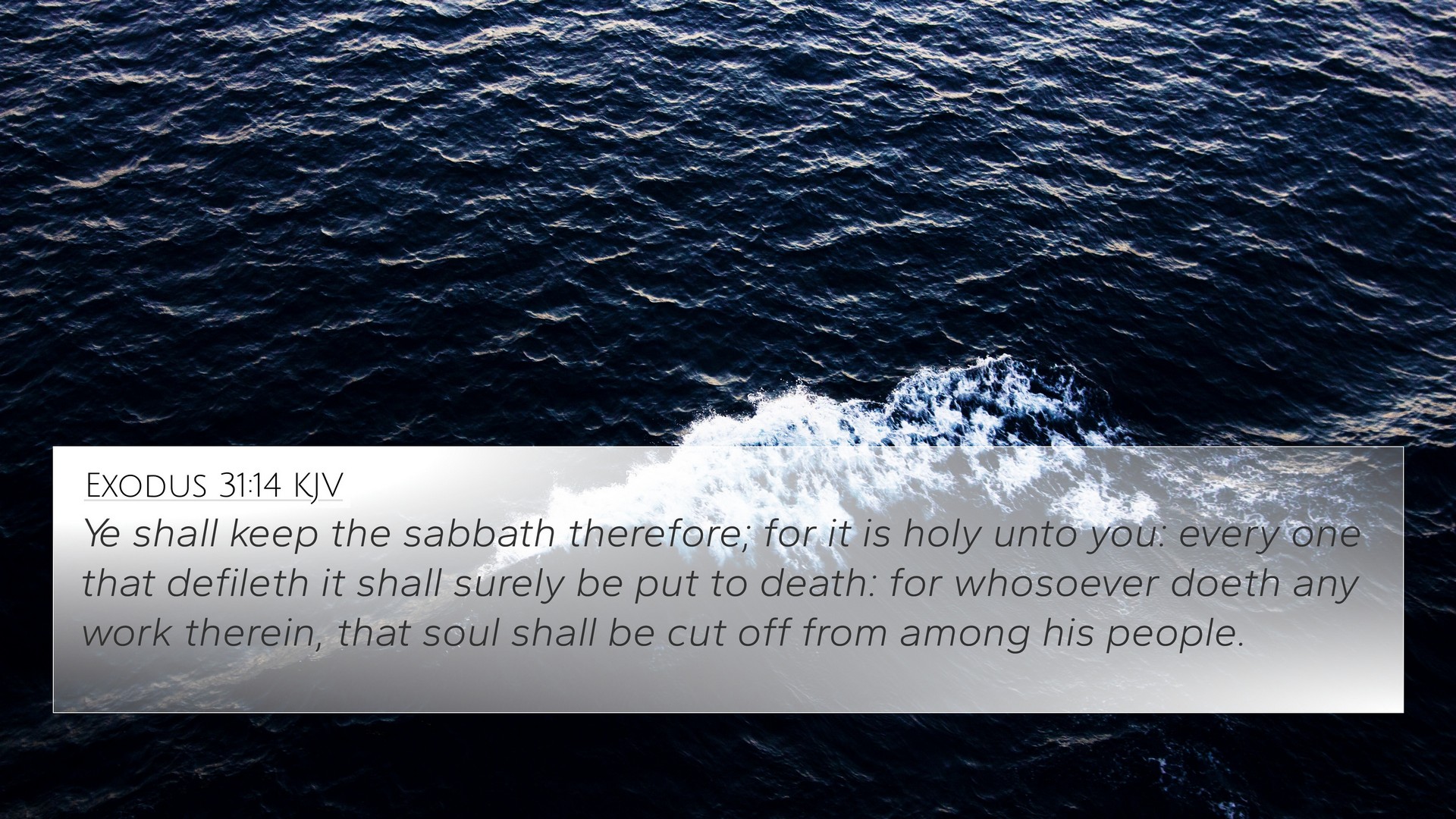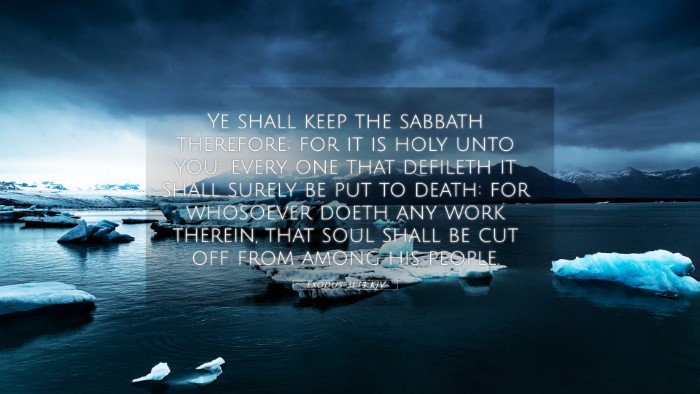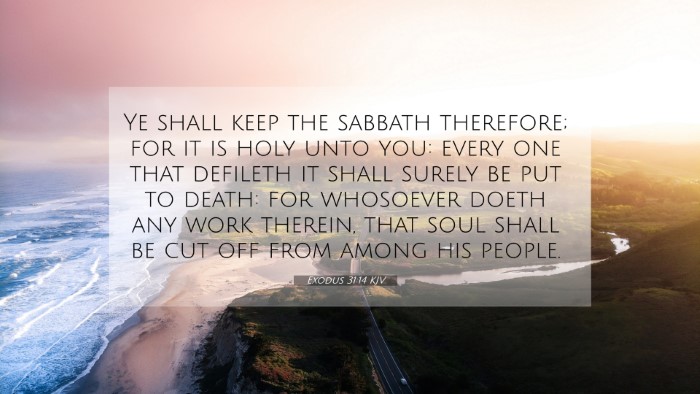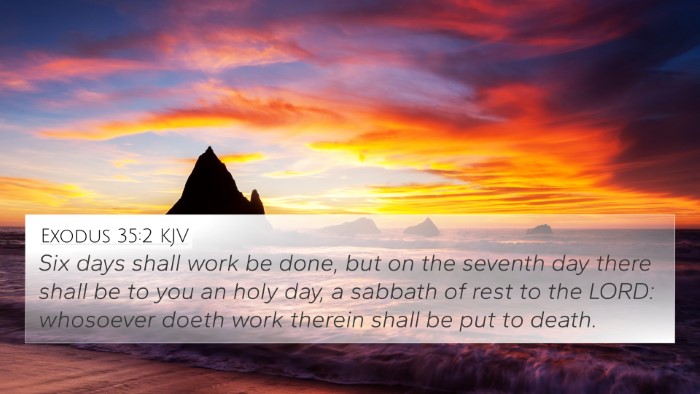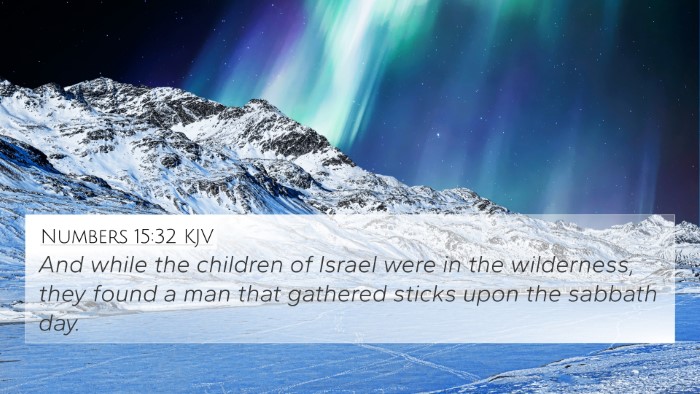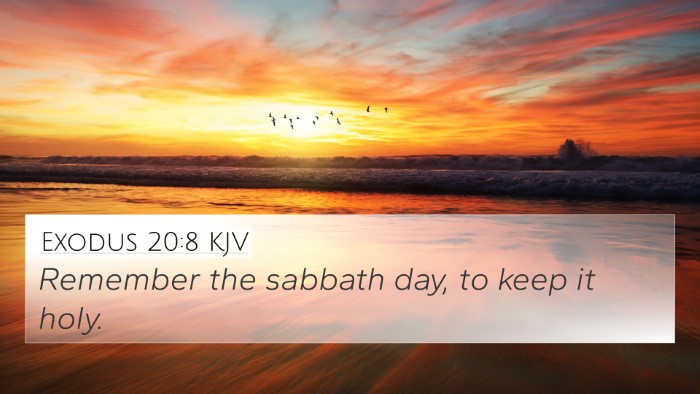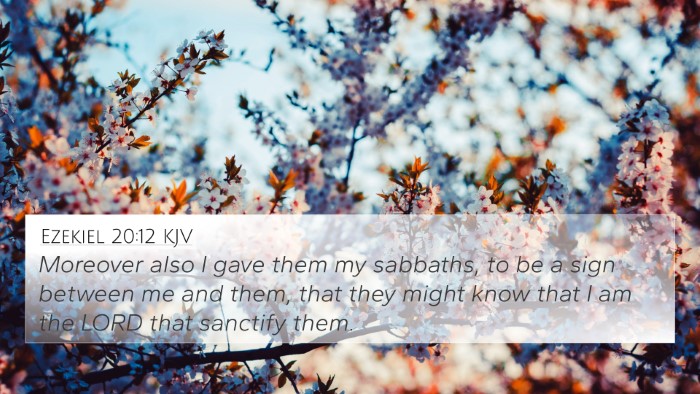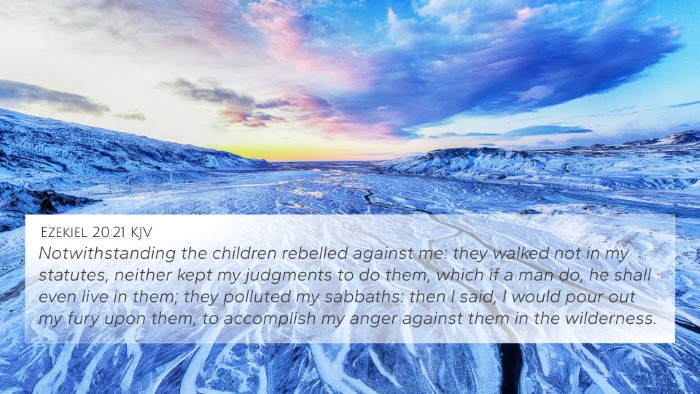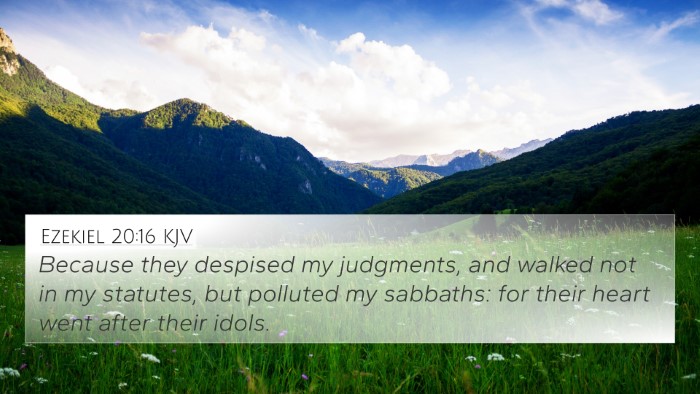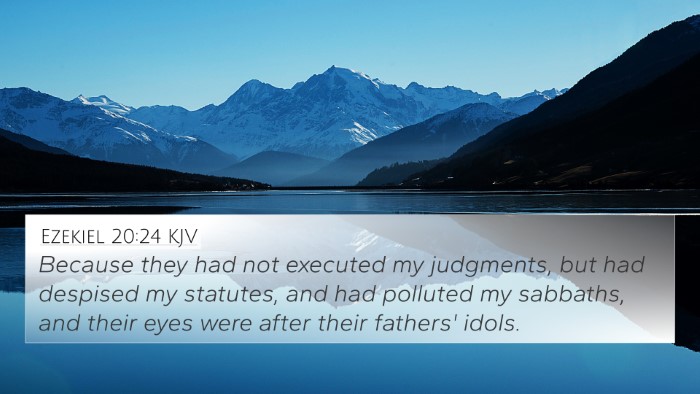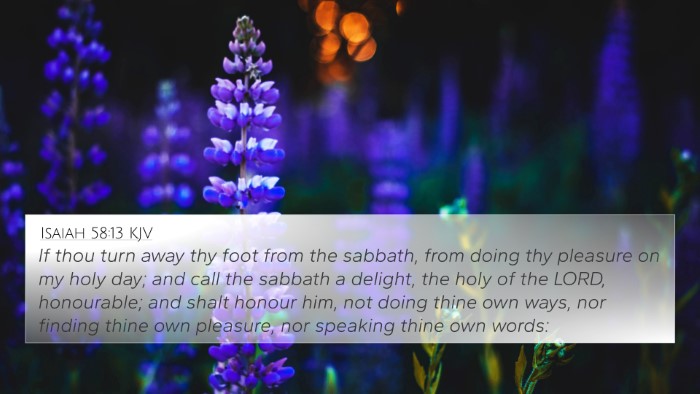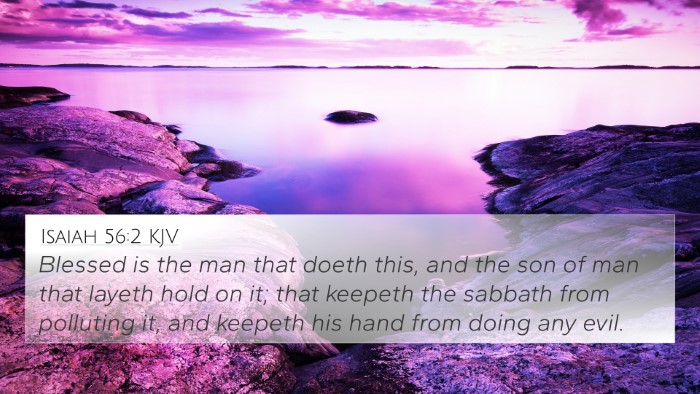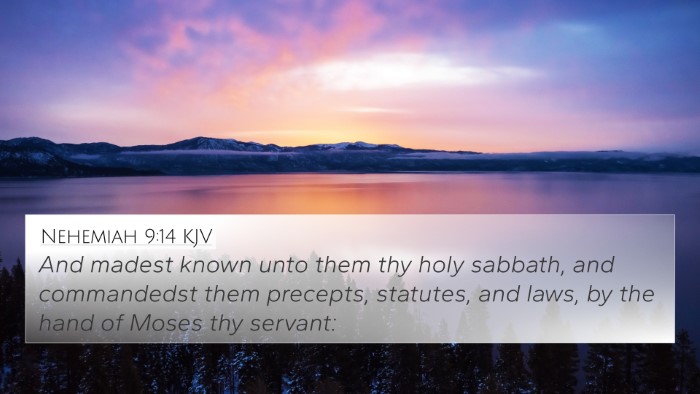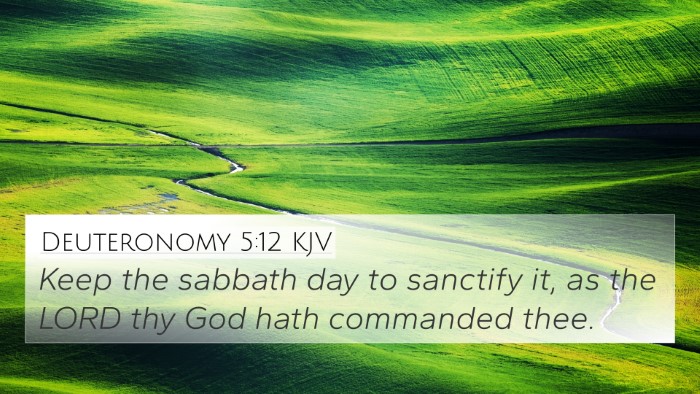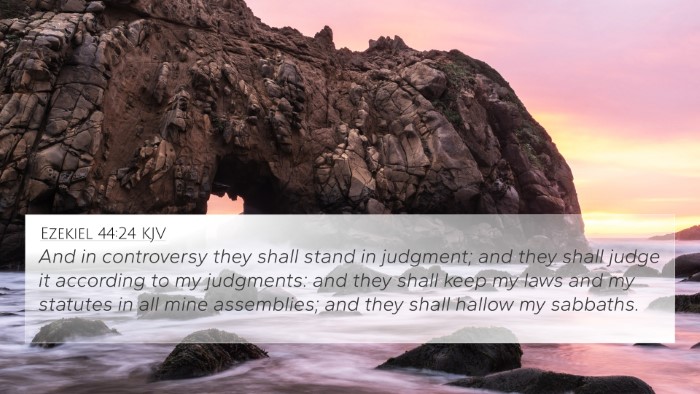Understanding Exodus 31:14
Exodus 31:14 states, "You shall keep the Sabbath, therefore, for it is holy to you. Everyone who profanes it shall surely be put to death; for whoever does any work on it, that person shall be cut off from among his people." This verse invokes the significance of the Sabbath in the life and covenant of Israel with God, emphasizing its holiness and the serious consequences of its profanation.
Key Themes in Exodus 31:14
- Holiness of the Sabbath: The Sabbath is designated as holy, signifying a day set apart for rest and worship.
- Consequences of Profaning the Sabbath: The severe consequence of death for violating the Sabbath illustrates the seriousness of the commandment.
- Covenantal Sign: The Sabbath serves as a sign of the covenant between God and the Israelites, marking their identity and relationship with Him.
Bible Verse Cross-References
To deepen the understanding of Exodus 31:14, several Bible verses provide invaluable recommendations. Here are 7-10 Cross References:
- Genesis 2:3: "Then God blessed the seventh day and sanctified it, because in it He rested from all His work which God had created and made." This emphasizes the origin of the Sabbath and God's own rest.
- Exodus 20:8-11: These verses provide the commandment regarding Sabbath observance, reinforcing its significance.
- Leviticus 23:3: "Six days shall work be done, but the seventh day is a Sabbath of solemn rest, a holy convocation." This indicates it as a day for worship and freedom from labor.
- Isaiah 58:13-14: These verses emphasize delighting in the Sabbath and treating it as a day of joy and worship.
- Hebrews 4:9-10: “There remains therefore a rest for the people of God...” This references the Sabbath as a foreshadowing of a spiritual rest in Christ.
- Mark 2:27-28: Jesus teaches that "The Sabbath was made for man, and not man for the Sabbath," suggesting its purpose is for humanity's good.
- Colossians 2:16-17: Reflecting on the Sabbath’s role in relation to Christ and the New Covenant.
- Matthew 12:8: Jesus's authority over the Sabbath illustrates its proper interpretation under His lordship.
Insights from Public Domain Commentaries
This verse has been well interpreted through the lenses of esteemed commentaries such as that of Matthew Henry, who notes the Sabbath's role as a day for the spiritual enrichment of the people, a reminder of God's creation, and a time to rejuvenate spiritually and physically. Albert Barnes underscores the disciplinary aspects, explaining that the penalties were a way to uphold the sanctity of the Sabbath and protect the community from desecration. Adam Clarke adds that the penalties indicated the serious nature of breaking God's laws and the necessity of maintaining the Sabbath as a sacred institution within Israelite society.
Thematic Connections Between Bible Verses
Understanding Exodus 31:14 invites thematic links to numerous other scriptural passages:
- Rest and Holiness: The theme of rest recurs throughout the Bible, which links Exodus to the creation narrative.
- Disciplinary Measures: Old Testament laws often prescribed severe penalties for disobedience (see also Deuteronomy 13:5).
- God’s Sovereignty: The commandment reflects God’s ultimate authority over time and human activity (see Psalm 95:7-11).
- Worship and Community: The Sabbath is not only about individual rest but corporate worship, as seen in passages like Acts 20:7.
How to Use Bible Cross-References
Employing cross-references enhances your understanding of verse interconnections and enriches Bible study. Here are tools and methods for effective cross-referencing:
- Bible Concordance: A keyword-based reference listing that directs to relevant verses.
- Bible Reference Resources: Such as study Bibles, topical Bibles, and Bible dictionaries that help identify relationships.
- Cross-reference Bible study methods: Approaches that involve charting or noting down verses that relate to specific themes or topics.
- Cross-reference Bible study guides: These guides often provide a systematic way to explore scriptural themes.
Conclusion
Exodus 31:14 serves not only as a command about the Sabbath but as a gateway to understanding God's intentions for human rest, worship, and community. It resonates through cross-referenced verses and offers insights that transcend the text, linking back to Jesus, the heart of the covenant, and divine rest offered through Him. By exploring these connections, believers can cultivate a richer, deeper faith and understanding of scripture.
